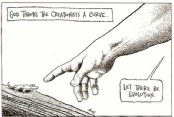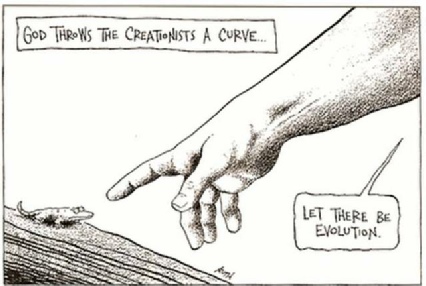



 NEXT
NEXT
 BACK
BACK
 Forum
Forum


Philosophical musings on Quanta & Qualia; Materialism & Spiritualism; Science & Religion; Pragmatism & Idealism, etc.




Post 38. 06/01/2018 continued . . .
Enlightenment Now again!
Human Progress or Divine Program?
The theory of Enformy assumes that Energy is not a physical fluid as some imagine, but a meta-
Pinker consistently finds obvious patterns of progress in both physical & historical evolution. But he doesn't believe in God, so his explanation for those eons of exceptions to natural law must be something equivalent to superstitious Luck, or to the hitherto nameless enforming force of Enformy. So, the Enformationism theory has a more scientific explanation for those improbable patterns. And yet, it is based on the unprovable axiom of a Great Mind, that “designed” a world system with both accidental disorder, and creative order, as many random possibilities are narrowed down to one actuality by Natural Selection. Thus, its not luck at all, but meta-
What's meaningful about our universe is that, despite the inherent randomness, we can perceive & understand its organized enformed patterns. Aware of something crudely equivalent to “natural laws”, the ancients concluded that a super-
Faced with the evidence for some kind of enforming agent, Pinker says that “it was reasonable to think they were the handiwork of a divine designer – one of the reasons, I suspect, that so many Enlightenment thinkers were deists rather than outright atheists.” Early observations of mathematical order in the stars, and evidence for progressive evolution made Design a plausible inference, and the Big Bang theory revived the ancient notion of Creation . Yet, he assumes that with our more complete modern understanding of how the world works, a preter-
He brings up the subject of Cybernetics and Systems Theory to explain the “appearance” of goal-
Post 38 continued . . . click Next


Natural
versus
Cultural
evolution
versus
progression

4. Duck or Decoy? :
That’s a rhetorical question. A long history of theories for humanoid agents in temple idols, on mountaintops, or in the clouds, were dis-
That’s why the ancient Hebrews rejected idolatry & polytheism in favor of a more abstract universal deity in Heaven, which is accessible only by faith. But their religious purity was soon tainted by repeated returns to worship of realistic symbols of their unreal deities.
The cave-
So, which is real, the thing or the idea of the thing? In the chain of causation, what is the ultimate cause : a fluctuation or an intention?